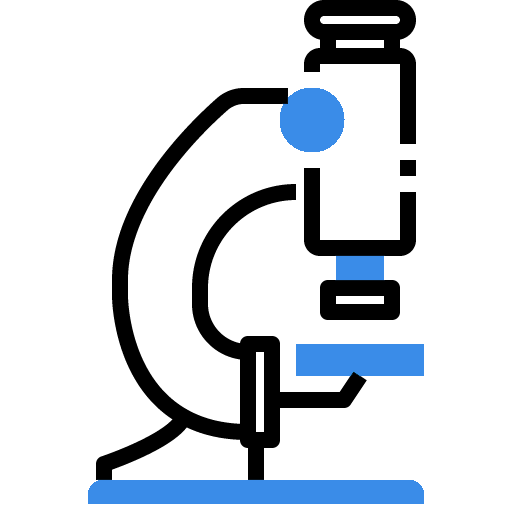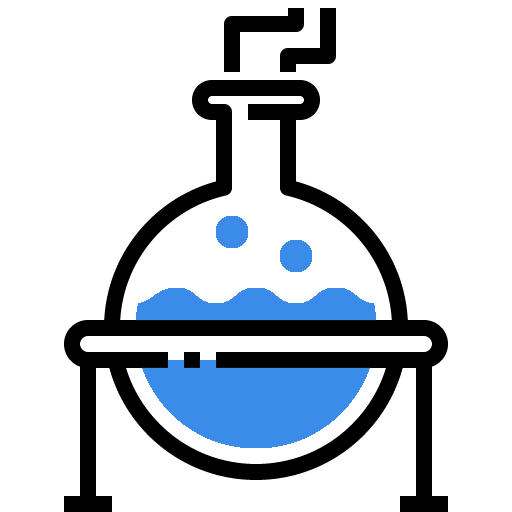Available positions
Join the Gut-Research team
Are you passionate about advancing gut health research and ready to make a difference? At Gut-Research, we offer exciting opportunities to work on cutting-edge projects alongside a multidisciplinary team of leading scientists, clinicians, and researchers. Join us to explore groundbreaking solutions in areas like inflammatory bowel disease (IBD), gut microbiota, and personalized medicine. Be part of a team that’s shaping the future of gut health through innovation and collaboration.
Postdoc / PhD Candidate
Department of Gastroenterology
- Full Time
- AmsterdamUMC
At Gut Research, we are keen to meet a postdoc and/or PhD fellow candidate for exciting opportunities to join the inflammatory bowel disease (IBD) research team at the Tytgat Institute and the Department of Gastroenterology at the AmsterdamUMC. Inflammatory bowel disease (IBD) constitutes a group of incurable, chronic, relapsing diseases of the gastrointestinal tract, stemming from a dysregulated interplay between the environment and the immune system in genetically susceptible individuals. We are seeking a skilled Postdoc/PhD with a passion for leveraging computational approaches to understand the molecular mechanisms underlying IBD and its phenotypes. In this role, you will collaborate closely with our interdisciplinary team of clinicians, geneticists, and molecular biologists to analyze large-scale omics datasets, including genomics, transcriptomics, proteomics, and microbiome data.
What tasks will you undertake?
Our earlier projects have generated a better understanding of the analyses of high-dimensional data in personalized approaches to IBD treatment. The ideal candidate will be able to:
- Work with in-house generated or publicly available genetic, epigenetic, transcriptomic, proteomic data at bulk and single-cell level.
- Aid in the development pipelines for analyzing high-dimensional biological data. Perform data preprocessing, quality control, and normalization on omics datasets for Biomarker identification and Molecular pathways analyses.
- Be able to work on Multi-omics data integration. Be able to master Data visualization techniques to communicate findings effectively to both technical and non-technical stakeholders.
- Apply (epi)genetic approaches to cells and tissue systems to study mechanistic aspects of IBD and its treatment. You will work within the epigenetic team over spanning gut Research laboratory and UvA Swammerdam Institute of Life Sciences
Who will be your colleagues?
You will be collaborating with researchers at the Tytgat Institute for Liver and Intestinal Research and the Department of Gastroenterology at the AmsterdamUMC as well as UvA Swammerdam Institute of Life Sciences (SILS) where needed. Departments are all located in Amsterdam and home to dedicated researchers engaged in fundamental, applied, and clinical research within the fields of gastroenterology and hepatology. The candidate will be actively involved in facilitating projects in the context of inflammatory bowel disease.
Candidate profile
- You possess a master’s degree in biomedical data sciences or a related life-science field with experience in applied data analysis.
- You have prior experience in analyzing omics data, such as (single-cell/bulk) RNA-sequencing, DNA methylation microarrays, or metagenomics sequencing. Previous exposure to single-cell omics technologies, such as single-cell RNA-sequencing, is a pre.
- Proficiency in R, Python, and bash scripting, along with familiarity working in a Linux environment using schedulers, is expected.
- Good verbal communication skills in English are essential.
- You are inherently driven, scientifically curious, and adept at collaborative teamwork.
Ongoing projects
Projects by gut-research
We are actively involved in a diverse range of projects that push the boundaries of gut health research. From studying biomarkers for inflammatory bowel disease (IBD) to exploring neonatal nutrition and probiotics for surgical recovery, our work aims to translate science into impactful solutions.

Anastomotic leakage (AL)
Anastomotic leakage (AL) is a serious complication following colorectal surgery. This study aims to assess AL by investigating the morphological, cellular, and molecular changes in anastomotic tissue, with the goal of improving patient outcomes. Supported by ZonMW.
Gut-research

Micropial: Wound Healing and Probiotics
Led by Bruno Sovran, the MICROPIAL project investigates how probiotics influence wound healing and anastomosis following cancer surgery. Funded by Health Holland and MRM Health, this research aims to advance understanding of probiotic therapies in surgical recovery. Learn more at Health Holland and MRM Health.
Bruno Sovran

IBD Methylomic and OMICROHN Trial
Led by Andrew Li Yim, the IBD Methylomic and OMICROHN Trial aims to uncover the epigenetic factors influencing inflammatory bowel disease (IBD). By analyzing methylomic changes, this project seeks to provide new insights into IBD progression and potential personalized treatments.
Andrew Li Yim

GROWTH 2020–2024
Metaryl is an EU JPI funded project that aims to study how the nutritional component tryptophane affects wound healing and infection in diabetes. First, we study how tryptophan metabolites affect the development of wound infections. Second, we determine how inflammation of the fat tissue in the abdomen plays a role in the development of type 2 diabetes.
The GROWTH program, part of the European Industrial Doctorates (EID), involves 10 PhD students developing biomarkers and personalized nutritional interventions for intestinal failure in neonates and preterm infants. By working with both academic and non-academic partners, the program bridges the gap between research and clinical applications. Utilizing over 17,000 fecal samples from premature infants, GROWTH aims to improve early intestinal development and reduce neonatal health risks.
Gut-research

Biomarker Development and Epigenetics in Gut Inflammation
This project focuses on the development of biomarkers and understanding the epigenetic mechanisms that drive cell differentiation during gut inflammation. By studying these processes, the research aims to improve diagnostics and therapeutic strategies for inflammatory gut diseases.
Mohammed Ghiboub

Complications in Crohn's Disease: Fistulae Research
Led by Isabelle van Thiel, this project focuses on identifying biomarker profiles to predict treatment responses in patients with perianal fistulizing Crohn's disease. By developing a precision medicine approach, the research aims to improve treatment outcomes and quality of life for those affected by this severe complication.
Isabelle van Thiel

Gut-Brain Interactions and Neuroinflammation in GI Diseases
This research examines the complex interactions between the gut and brain, focusing on neuroinflammation in conditions such as IBD, Irritable Bowel Syndrome (IBS), and motility disorders. In collaboration with Galvani Bioelectronics, this project aims to deepen our understanding of these interactions to improve treatments.
Gut-research

METARYL 2023–2027
Metaryl is an EU JPI funded project that aims to study how the nutritional component tryptophane affects wound healing and infection in diabetes. First, we study how tryptophan metabolites affect the development of wound infections. Second, we determine how inflammation of the fat tissue in the abdomen plays a role in the development of type 2 diabetes. Third, we will test dietary interventions in this process to help people cope with this problem. METARYL partners with professor Sven Wehner, University of Bonn, and Harry Sokol from Sorbonne University in Paris, France.
Rene van den Wijngaard

Anastomotic leakage (AL)
Anastomotic leakage (AL) is a serious complication following colorectal surgery. This study aims to assess AL by investigating the morphological, cellular, and molecular changes in anastomotic tissue, with the goal of improving patient outcomes. Supported by ZonMW.
Gut-research

Micropial: Wound Healing and Probiotics
Led by Bruno Sovran, the MICROPIAL project investigates how probiotics influence wound healing and anastomosis following cancer surgery. Funded by Health Holland and MRM Health, this research aims to advance understanding of probiotic therapies in surgical recovery. Learn more at Health Holland and MRM Health.
Bruno Sovran

IBD Methylomic and OMICROHN Trial
Led by Andrew Li Yim, the IBD Methylomic and OMICROHN Trial aims to uncover the epigenetic factors influencing inflammatory bowel disease (IBD). By analyzing methylomic changes, this project seeks to provide new insights into IBD progression and potential personalized treatments.
Andrew Li Yim

GROWTH 2020–2024
Metaryl is an EU JPI funded project that aims to study how the nutritional component tryptophane affects wound healing and infection in diabetes. First, we study how tryptophan metabolites affect the development of wound infections. Second, we determine how inflammation of the fat tissue in the abdomen plays a role in the development of type 2 diabetes.
The GROWTH program, part of the European Industrial Doctorates (EID), involves 10 PhD students developing biomarkers and personalized nutritional interventions for intestinal failure in neonates and preterm infants. By working with both academic and non-academic partners, the program bridges the gap between research and clinical applications. Utilizing over 17,000 fecal samples from premature infants, GROWTH aims to improve early intestinal development and reduce neonatal health risks.
Gut-research

Biomarker Development and Epigenetics in Gut Inflammation
This project focuses on the development of biomarkers and understanding the epigenetic mechanisms that drive cell differentiation during gut inflammation. By studying these processes, the research aims to improve diagnostics and therapeutic strategies for inflammatory gut diseases.
Mohammed Ghiboub

Complications in Crohn's Disease: Fistulae Research
Led by Isabelle van Thiel, this project focuses on identifying biomarker profiles to predict treatment responses in patients with perianal fistulizing Crohn's disease. By developing a precision medicine approach, the research aims to improve treatment outcomes and quality of life for those affected by this severe complication.
Isabelle van Thiel



